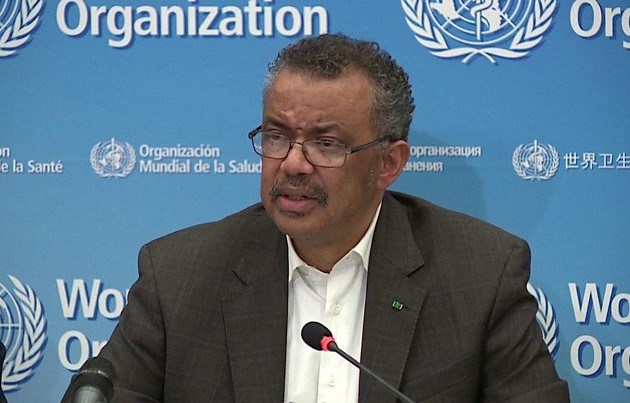The coronavirus pandemic started at a wet market in Wuhan, China, where it arose in animals, jumped to humans and then spread via human-human transmission. WHO does not intend to work for a ban on wet markets.
There are different types of wet markets. Markets where life animals are slaughtered for customers are found not only in China but also in other countries. After previous outbreaks of pandemics, the Chinese authorities banned temporarily wet markets but the markets were apparently allowed to reopen.
On Friday (17 April), WHO Director-General Dr Tedros Adhanom Ghebreyesus, at his regular virtual press conference, said that he wanted to “clarify” the position of the World Health Organisation on wet markets, without mentioning the role of China.
According to WHO’s Director-General, wet markets are an important source of affordable food and livelihood for millions of people all over the world. But in many places, they have been poorly regulated and poorly maintained.
“WHO’s position is that when these markets are allowed to reopen, it should only be on the condition that they conform to stringent food safety and hygiene standards,“ he said. How that is possible at all he did not explain.
He added that governments must rigorously enforce bans on the sale and trade of wildlife for food and admitted that an estimated 70 % of all new virus come from animals.
In fact, endangered animals are sold at the wet markets, such as snakes, turtles, and birds. The new coronavirus probably comes from a bat, possibly via a pangolin as an intermediate host.
According to Wouter van der Weijden, director of the Center for Agriculture and Environment in The Netherlands, China is not only damaging its own public health and economy but also that of the entire world by allowing the wet markets.
“Live animals are housed in extremely cramped conditions until they are slaughtered in the market for those who have purchased them. In these conditions, infections are easily transmitted from one animal to another," writes philosophy professor David Benatar, Director of the Bioethics Center at the University of Cape Town (The New York Times, 16 April).
“The proximity to humans, coupled with the flood of blood, excrement and other bodily fluids and parts, all facilitate the infection of humans. It is these very conditions that facilitate the emergence of new infectious diseases and that also inflict horrific harms on animals – being kept in confined conditions and then butchered.”
If there is a lesson to be learned from the outbreak of the coronavirus, it is that wet markets where animals are slaugthered and endangered wild life traded should be banned and that the Chinese authorities should once and for all put an end to them. It can hardly be claimed that poor people need them to find “affordable food”.
But WHO, under its Director-General, has been reluctant to antagonize China. American journalist Nicholas Kristof (The New York Times, 17 April) writes that WHO, with all due respect to its work to fight the coronavirus and support countries around the world to save lives, “has been too cosy with China.”
WHO did warn the rest of the world already in the beginning of January about the coronavirus but waited until mid-March to sound the alarm bell and classify it as a pandemic spreading to more than one continent. Then it was too late to contain its spread to Europe. Its statement on wet markets does not add to the trust in the organisation.
M. Apelblat
The Brussels Times

